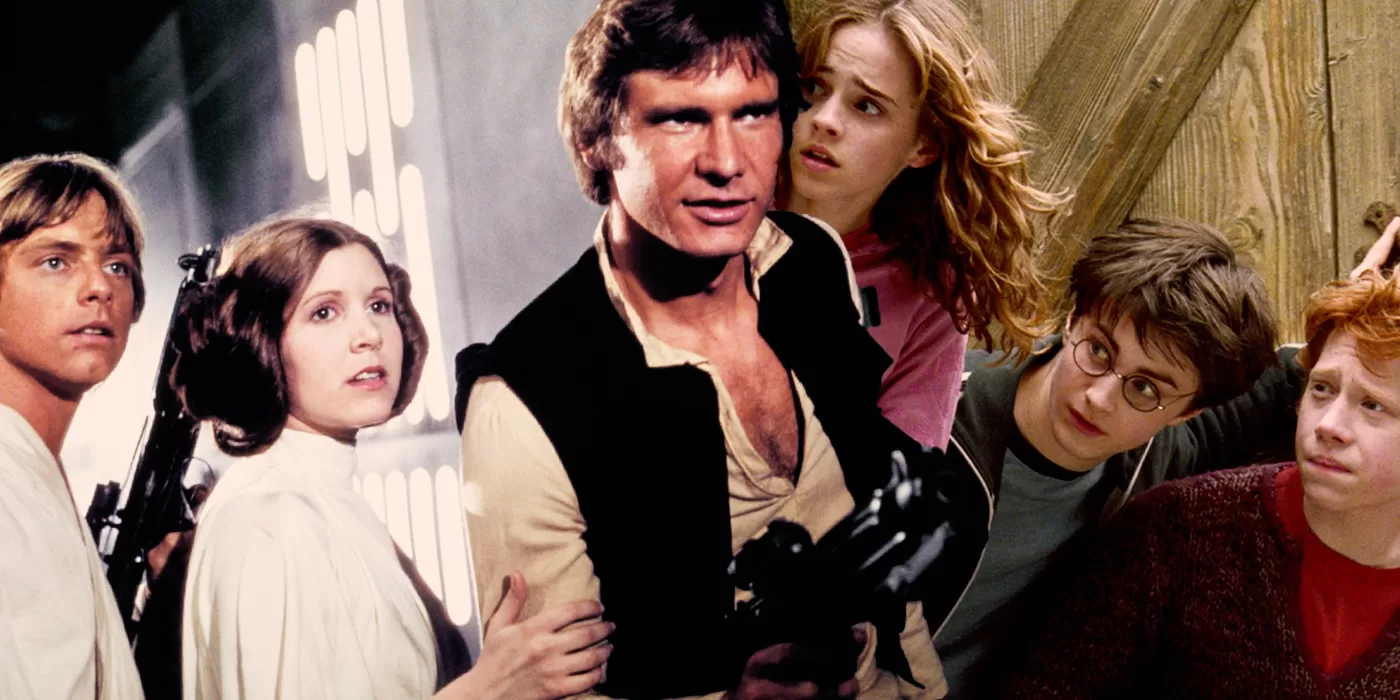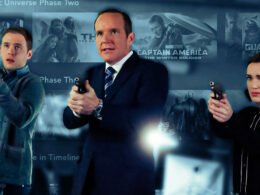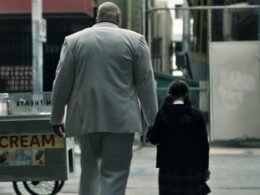For the past dozen years, Black Mirror has been the science fiction anthology series of the social media era. The title refers to the cold dead screens of the omnipresent devices with which we interact ever more frequently, as well as the series’ brilliant statements about our growing evolution with tech, told through satirical fables. The best Black Mirror episodes run the gamut from the twisted to the ethereal, all loyal to a through line of exploration of the myriad ways in which technology is either elevating our existence, or poisoning it.
Now that all episodes of Black Mirror series 6 are now streaming on Netflix, here are the six best Black Mirror episodes so far:
*Warning: Spoiler Warning ahead for Black Mirror seasons 1-6*
6. Fifteen Million Merits (Season 1, Episode 2)
Among the list of best Black Mirror episodes, Fifteen Million Merits is certainly the earliest. The second episode of season one, Fifteen Million Merits is a better example of the kind of marriage between social commentary and science fiction that Black Mirror is known for today than The National Anthem, the show’s first episode.

In a world where workers consume entertainment in a constant stream by way of ubiquitous screens, Bing (Daniel Kaluuya) decides to give his life savings to pay for Abi’s (Jessica Brown Findlay) ticket to a talent competition and chance at escaping their hamster wheel-like existence. Up until that point, the episode is a dystopian romantic comedy, complete with a meet cute moment when Bing hears Abi’s angelic singing voice.
When the talent competition judges tell Abi that they won’t hire her as a singer but will offer her another shot at celebrity status by making adult videos, the episode makes its statement. Talent and fame are not necessarily the same. Every part of us, from our bodies to our emotions, is a commodity to packaged and sold. We are all complicit in the Entertainment Industrial Complex.
Fifteen Million Merits is a commentary on the changing nature of fame in the social media era, and how we as a society have been lulled into an empty existence by our incessant entertainment feed.
5. USS Callister (Season 4, Episode 1)
Stop us if you’ve heard this one before: By day, Robert (Jesse Plemons) is a meek, awkward, video game developer. By night, he lives a second life online as a cruel and all-powerful starship captain in a Star Trek-esque video game. His crew comprises sentient avatars created from the stolen DNA of his unwitting IRL coworkers, newest among them is Nanette (Cristin Milioti).
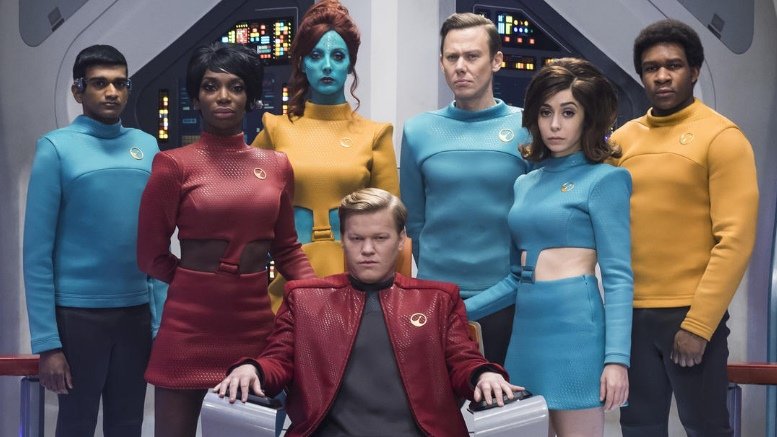
USS Callister is, at its core, a story which we’ve become all too familiar in our world, the seemingly harmless creep who lets his anger metastasize within the confines of cyberspace. In the geek culture era, we’ve seen the rise of a nasty corner of the fandom space made up of sad, lonely, angry men who resent the diversification of the arenas they used to populate alone. Plemons is the perfect actor to play Robert, who is at once mild-mannered and simmering beneath the surface.
The deep themes, impeccable cast, and loving homages to Star Trek make this episode one of the best Black Mirror episodes ever.
4. Nosedive (Season 3, Episode 1)
The best Black Mirror episodes make us reflect on the ridiculousness of our own world by holding up a fun house reflection of it. Nosedive is a perfect example of playing out “Like and Subscribe” culture to its extreme.
Lacie (Bryce Dallas Howard) lives in a world where every social interaction is rated (imagine your Uber rider score on steroids). The higher your score, the more perks open up to you. When Lacie is asked to deliver the Maid of Honor speech at her friend’s wedding, she sees it as an opportunity to rack up positive ratings and finally afford a better apartment (which will in turn ensure a better job, and so on). When the flight gets cancelled, Lacie becomes a Karen. And, as for what happens in our world to any Karen in an airport, her cancellation begins.

Nosedive so presciently predicts what happens to those who get caught in public during their worst moment. Lacie’s outburst leads to her score getting lowered, which negatively impacts every aspect of her life, from the type of car she can rent to whether or not her friend even wants her at the wedding anymore.
The allegory here is fairly obvious and maybe even heavy-handed, but it’s fun to watch Howard melt down. This is one of the few Black Mirror episodes that ends on a somewhat hopeful note, as Lacie hits rock bottom, but in doing so realizes she’s no longer tethered to the exhausting rat race of living for the likes.
3. Beyond the Sea (Season 6, Episode 3)
Of the entries included in Black Mirror’s latest volume, Beyond the Sea is the most cinematic. In 1969, two astronauts, David (Josh Hartnett) and Cliff (Aaron Paul) are on a 6-year mission into space with no one else on the ship save each other. When they sleep, they upload their consciousnesses into completely lifelike android replicas of themselves, stationed back on earth. One lives the life of a celebrity, raising a family in Hollywood, while the other lives on desolate farmland with his wife (Kate Mara) and son. When David’s family falls victim to a Manson Family-style execution, he suddenly has no tether to his life on earth. So, Cliff offers use of his android, to shocking results.
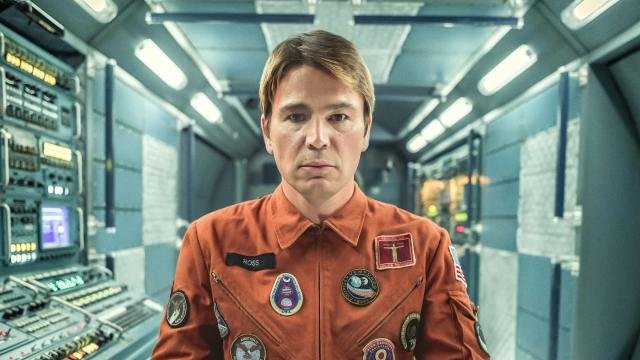
The major drawback of Beyond the Sea is that it isn’t longer. The ending stumbles simply for the fact that there isn’t quite enough runway to earn it. The concept is so rich and the characters so compelling that it could easily have been Black Mirror’s first theatrically released feature. Hartnett and Mara deliver powerful performances, but it’s Aaron Paul who provides not one, but three nuanced portrayals: Cliff, Cliff as an uploaded consciousness in his android, and David as uploaded into the Cliff android. The episode is beautifully shot, even by Black Mirror’s standards.
The episode feels at once meditative and kinetic, claustrophobic and full of possibility.
2. White Bear (Season 2, Episode 2)
A woman (Lenora Crichlow) wakes up in an empty apartment with no memory of who she is or how she got there. As she wanders the town looking for answers, onlookers record her on their cell phones, but do not speak a word. Why is everyone acting so strangely? Who is this woman, and why is she in this situation? And perhaps most importantly, who are the people hunting her?
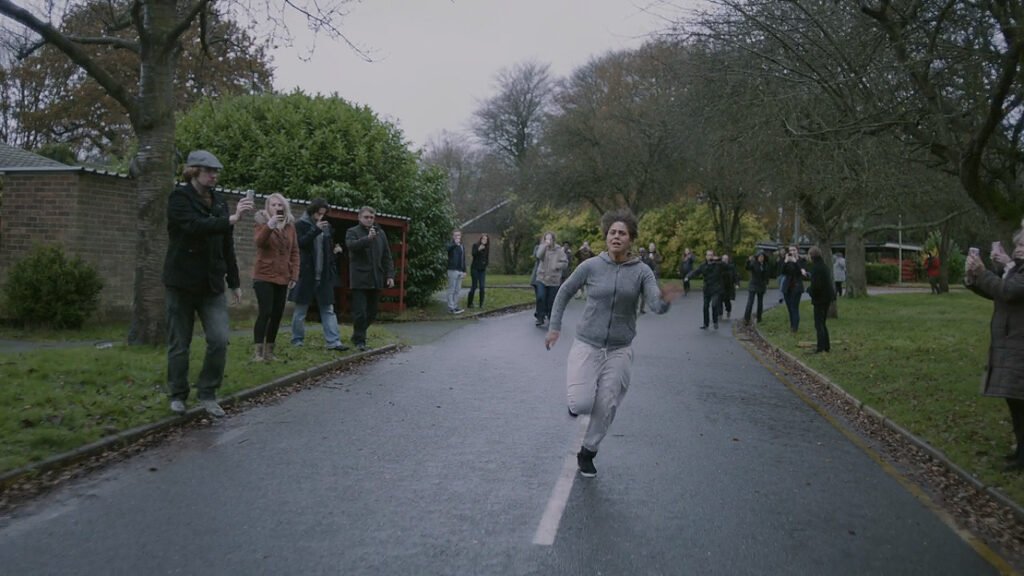
White Bear is Black Mirror at its diabolical best. By introducing us to the woman, we are with her as she experiences this bizarre world. We’re asking the same questions she is. We’re on her side.
The final moments turn our emotions on their ears. Suddenly, we’re tasked with asking big questions. Is this woman worthy of our sympathy? Who are we without our memories? What is justice? There are other episodes of Black Mirror that are this dark, maybe darker. And plenty of the best Black Mirror episodes end on a twist. None succeed to the level of White Bear.
1. San Junipero (Season 3, Episode 4)
Through all of its twists and turns, murder and depravity, robots and monsters, Black Mirror‘s most beautiful episode is San Junipero. The story centers around two women who find love in an ’80s disco in the heavenly beach town of San Junipero. When Kelly (Gugu Mbatha-Raw) can’t find Yorkie (Mackenzie Davis), she travels through the decades until she finds her, and we realize that all that we’ve been watching is a simulation of two uploaded consciousnesses, from two women who might’ve just discovered their true selves just in time for the end of their lives.

Black Mirror has conditioned us as viewers to expect the ground to drop out from under us, revealing despair and pain at the hands of a technological age fundamentally at odds with human nature. Technology, at least the sort offered on the show, breaks our relationships, topples our societies, and makes monsters of us all. But, technology also guides us to discover truths about ourselves, helps us to become fully realized, and challenges us to become better.
San Junipero leans in on the latter. It is the most hopeful episode in the series, and it is the most uplifting. It offers us nothing less than two souls, in love, living happily, ever after. And that is why it tops the list of the very best Black Mirror episodes.
What the best Black Mirror episodes say about us
A good satire, like Being There or Wag the Dog, pokes holes in certain slices of our society, taking the air out of their authority or mystique by pointing out how absurd it is that they ever had either to begin with. A great satire forces us to dismantle our own inflated visions of ourselves. Black Mirror achieves both.
There are episodes that lead us to question big ideas like justice and war, and there are others which challenge us on a more personal level. Am I complicit in injustice, exploitation, or cruelty? Through six seasons, a Christmas special, and a choose-your-own-adventure movie, Black Mirror shows no signs of letting up on our society, nor us.








